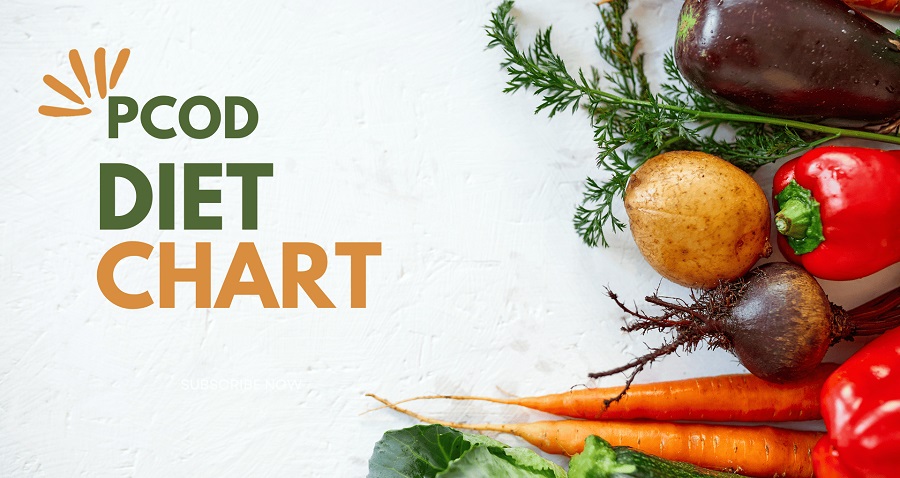Polycystic Ovary Syndrome (PCOS) poses a significant health challenge for women worldwide, affecting one-third of the female population. In the pursuit of holistic well-being, a crucial aspect of managing PCOS is adopting a well-structured PCOD diet chart. This guide sheds light on dietary perspectives that can help alleviate PCOS symptoms and enhance overall health. In tandem with nutritional considerations, safeguarding one’s financial and medical interests becomes paramount. This is where health insurance plans play a pivotal role, particularly tailored for individuals.
Polycystic Ovary Syndrome (PCOS) affects approximately one-third of women globally, often linked to lifestyle choices. While the exact causes are unknown, factors such as unhealthy lifestyle, stress, and obesity contribute to its development. PCOS can lead to serious health issues like uterine cancer, type 2 diabetes, infertility, and miscarriage, necessitating financial protection through health or critical illness insurance.
Understanding PCOS:
PCOS results from hormonal imbalances during reproductive years, causing irregular periods and an excess of androgen. It leads to the formation of tiny fluid-filled sacs or cysts along the ovary’s outer edge, inhibiting the regular release of eggs. Weight loss and a PCOS diet plan can mitigate long-term risks associated with PCOS, such as diabetes and heart disease.
Importance Of Diet Charts:
Dietary charts are crucial in managing PCOS symptoms and promoting a healthy lifestyle. They emphasize nutrient-rich foods, green leafy vegetables, and essential elements like iron, magnesium, calcium, potassium, protein, and vitamins. Diet influences PCOS primarily through weight control and insulin production.
Inclusions In PCOS Diet Chart:
- Green Leafy Vegetables: Incorporate kale, spinach, and broccoli to enhance blood circulation and benefit the skin.
- Fruits: Include low glycemic index fruits like apples, pomegranates, berries, and cherries to improve insulin sensitivity.
- Fibre-Rich foods: Oranges, beans, avocados, nuts, and peas help manage PCOS symptoms.
- Almonds: Healthy fats in almonds, walnuts, and other nuts contribute positively to PCOS treatment.
- Fatty Fish: Tuna, salmon, sardines, and mackerel, rich in omega-3 fatty acids, are crucial for a PCOS diet.
Foods To Avoid In PCOS Diet:
- Refined Carbohydrates: Minimize intake of refined carbs found in bread, pastries, cereals, and pizza.
- Sweetened Beverages: Eliminate sugary drinks like soda, sports drinks, and sweetened waters from the diet.
- Processed Meats: Steer clear of processed meats such as salamis, hot dogs, and sausages.
In navigating the complexities of Polycystic Ovary Syndrome, embracing a comprehensive approach is essential. A well-crafted PCOD diet chart is a foundation for managing PCOS symptoms and promoting overall health. However, acknowledging the unpredictable nature of health challenges, it becomes imperative to consider protective measures for physical and financial well-being. Health insurance plans for individuals emerge as a beacon of assurance, providing a safety net during medical exigencies. The benefits of health insurance extend beyond mere coverage, offering peace of mind and a proactive approach to healthcare. Claims are subject to terms and conditions set forth under the health insurance policy. *
Leveraging tools like health insurance premium calculators empowers individuals to make informed choices, aligning coverage with their needs. As we strive for a balanced and healthy lifestyle, integrating a PCOD diet chart with the security provided by health insurance plans ensures a holistic and resilient approach to well-being. Claims are subject to terms and conditions set forth under the health insurance policy. *
*Standard T&C Apply
Insurance is the subject matter of solicitation. For more details on benefits, exclusions, limitations, terms, and conditions, please read the sales brochure/policy wording carefully before concluding a sale.









